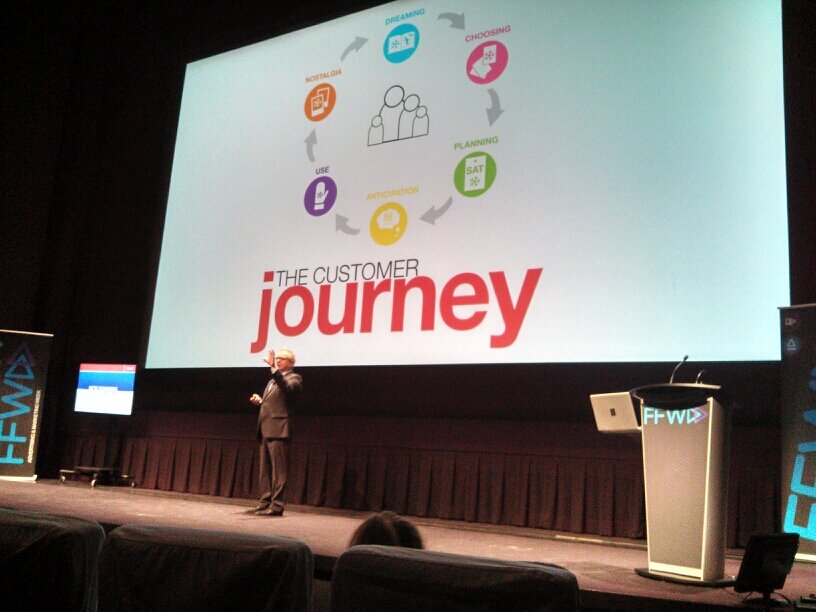Do you know your real value? Can you explain it clearly to a total stranger? To a prospective customer? To a member of your family?
A lot of what is said and written about branding relates to brand personality. How a business or a brand is expressed visually, the tone and manner and nature of the message. But the essence of branding is simply a question of clearly expressing how you, your product or your business are unique. In B2B (business-to-business) marketing, this differentiation is expressed through the value statement. A few short sentences that succinctly express the value that you bring to your customers.
You’ve probably heard the expression “elevator pitch” or “elevator speech”: a short statement that would allow you to explain to a total stranger who you are and what you do best in the time it takes to travel from the lobby to the top floor of an office building by elevator. Your value proposition is in essence your elevator pitch and it focuses on the value that you could provide to a prospective customer.
Everyone believes — often wrongly so — that they truly know what value they provide. But expressing it clearly and succinctly is a lot harder than it looks.
Here are seven common mistakes to avoid in your elevator pitch:
1 – Talk about yourself and your accomplishments: Your success and professional achievements are no doubt a source of pride. That you are a leader in the industry is certainly something to be proud of. But claiming this in an elevator pitch actually creates a distance between you and your customers. It can make you sound like you think you’re somehow better than them.
The objective of the value statement is quite the opposite. It is to build proximity by linking what you do with a need or pressing challenge that your client is facing and to express this in the form of a benefit. For example: the loyalty programs that we build for our clients help them keep customers longer, so they can focus their resources and energy on other pressing issues, like new product launches, rather than on customer acquisition.
2 – Talk about the tenure of your business: Nobody cares that you’ve been in business for 22 years! The fact that you have survived all these years is a tribute to your resolve. But it doesn’t demonstrate that the experience you’ve acquired over the years brings value to your clients. So drop any reference to years in business from your elevator pitch.
3 – Use technical buzzwords: the purpose of the elevator pitch is not to demonstrate your extensive vocabulary. If you use technical jargon and buzzwords, you create a communication barrier between you and your customers and will quickly loose their attention. Nobody likes to feel dumb, so using words people don’t understand actually works against you.
4 – Talk about your equipment, your technology and capabilities: your customer doesn’t really care what platform or process you use to achieve your results. At the end of the day, what’s in it for me is all that counts
5 – Use “marketing speak”: Don’t say that you “optimize the customer relationship”. That doesn’t really mean anything, or can have so many meanings as to be confusing. Simply say that you get customers to buy more.
6 – Talk generically about what you do: Be specific! Whenever possible, tie what value you provide to the customer’s industry or job function. You’re talking to a CA, a lawyer, an architect? Tell them how you help professionals service firms find new customers. You’re talking to a sales manager? Tell her how you help sales people make better use of their time in order to close more sales. An elevator pitch should be as relevant as possible.
7 – Fail to make your value tangible : Numbers often speak louder than words! So your elevator pitch should make good use of them. Use a concrete example and interesting facts and figures to prove your value and create interest. For example, you could say: For one of our clients in the cosmetics industry, we multiplied campaign results by ten through the use of personalization.
Always remember… you only have a few brief seconds to grab attention. You should be compelling, impactful and to the point. But more important: everything you say in your elevator pitch must be memorable.


 Every year, Clutch releases their Leader Awards. We are thrilled to announce that Clutch has named STRATEGIES a global B2B leader in the advertising and marketing category. Our team is
Every year, Clutch releases their Leader Awards. We are thrilled to announce that Clutch has named STRATEGIES a global B2B leader in the advertising and marketing category. Our team is 







![Physical Meets Digital – How to Increase Marketing ROI [VIDEO]](https://strategies.ca/wp-content/uploads/2013/02/Screen-Shot-2015-11-04-at-10.51.21-AM-790x500.png)




